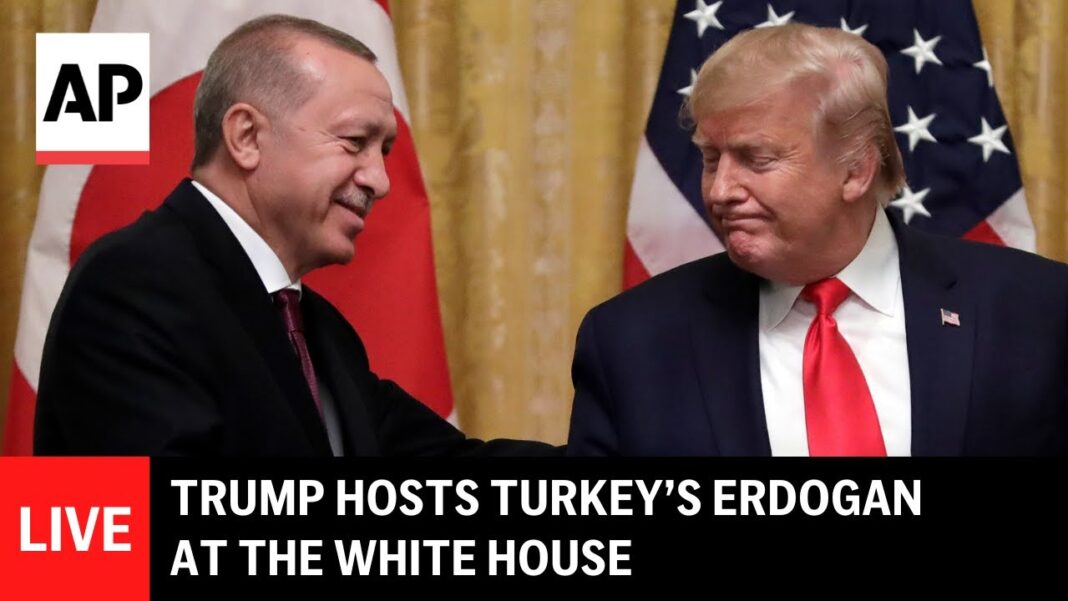In the grand theater of the United Nations, where platitudes often masquerade as policy and resolutions pile up like autumn leaves, President Donald Trump delivered a speech this week that was equal parts indictment and invitation. Speaking extemporaneously after a teleprompter malfunction (he quipped it allowed him to “speak more from the heart”) Trump laid bare the hypocrisies of globalism with the blunt force of a sledgehammer wrapped in velvet. It was not, as his detractors would have it, a mere rant against world order. Rather, it echoed the wisdom of an old Galician adage: When someone claims to be 100 percent right, beware the fanatic. But in Trump’s case, his assertions hover closer to that rare 75 percent mark, suspiciously accurate, as the wise might say, demanding not dismissal, but serious reckoning.
Reviewing the address, one finds a masterclass in rhetorical economy: No wasted words, no concessions to diplomatic niceties that so often conceal inaction. Trump opened with a nod to Secretary-General António Guterres, only to pivot swiftly to the UN’s core failing: “What is the purpose of the United Nations? All they seem to do is write a really strongly worded letter and then never follow that letter up.” He chronicled his administration’s feats such as ending “seven unendable wars” through brokered ceasefires in Africa and Asia, feats the UN watched from the sidelines. On Ukraine, his advice was stark: Europe should “shoot down” intruding Russian aircraft, while pushing for a peace that restores sovereignty. In the Middle East, he extolled the Abraham Accords’ durability, decried premature Palestinian statehood as a gift to Hamas, and floated an Arab-led resolution demanding hostages’ release.
Domestically, the president touted metrics that would make even his skeptics pause: Inflation vanquished, energy prices tamed, the stock market shattering records 48 times, wages surging at a pace unseen in six decades, all propelled by $17 trillion in investment. Borders sealed shut for four months running, with deportations to willing partners like El Salvador’s Nayib Bukele, whom Trump hailed as a “hero.” He unveiled military strikes against Venezuelan cartels and an AI-enforced push on biological weapons.
The speech’s sharper edges targeted the sacred cows of internationalism: Climate alarmism as “the greatest con job ever perpetrated,” renewables dismissed as unreliable follies that “don’t work,” and unchecked migration as a “weaponized” assault on Europe: “your countries are going to hell.” Praise flowed for sovereignty’s champions, Italy’s Giorgia Meloni, Hungary’s Viktor Orbán, while he warned against aid that funds terror and advocated tariffs to level trade’s playing field. Free speech and the plight of persecuted Christians rounded out a vision unapologetically rooted in Western values.
Reviewing Trump’s speech, one discerns not bombast, but a calculated dissection of global follies. Trump’s structure, boasts buttressed by data (40 percent), critiques laced with irony (30 percent), and prescriptions sharp as daggers (30 percent), mirrors the incremental logic of a seasoned negotiator. Consider his ad-libbed opener: It disarms with humor, then strikes with truth, much like Churchill’s wartime broadcasts that blended resolve with wry observation. The repetition, “strongest economy, strongest borders, strongest military”, serves as a rhetorical anvil, forging consensus from chaos. Reactions underscore its potency: Allies like Orbán echoed approval online; viewership tripled prior years, a testament to its resonance amid multipolarity.
And why is Trump’s worldview not merely defensible, but profoundly correct? Begin with sovereignty’s sanctity: The UN’s avalanche of resolutions, over 300 on Israel alone, scant on Sudan’s atrocities, reveals a body more biased than bold. Trump’s unilateral triumphs in quelling conflicts evoke Reagan’s endgame against the Soviets: Deterrence through strength, not supplication. Ukraine’s half-trillion-dollar quagmire stems from Europe’s hesitance; Trump’s “shoot down” edict revives the logic that averted wider wars in his first term.
Economically, the evidence is irrefutable: GDP at 3.2 percent, unemployment at 3.4, half a million manufacturing jobs restored—surpassing his predecessor’s lethargy. Tariffs extracted concessions from the EU, proving reciprocity’s power against China’s mercantilist sleight of hand. Witness Argentina under Milei: Inflation halved through deregulation, a vindication of Trump’s anti-bureaucratic zeal.
On security, borders are no abstraction: Fentanyl fatalities down 40 percent via interdictions; Europe’s migrant influxes correlate with crime surges in Sweden and Germany. Bukele’s Salvadoran miracle (a 90 percent homicide plunge) illustrates that resolve trumps the UN’s compassionate inertia.
Energy realism cuts through the haze: Renewables furnish a paltry 12 percent globally; Germany’s green pivot inflated bills by half while emissions lingered. Trump’s LNG surge undercut Russia’s coffers, achieving cuts through markets, not mandates. His biological weapons initiative? A prescient guard against lab-born perils, post-COVID.
Culturally, defending identity fosters cohesion: Japan’s low-migration idyll yields unmatched safety; pre-Trump America’s trust erosion reversed under his watch. Free speech advocacy counters the UN’s creeping censorship under the guise of combating “hate.”
In sum, Trump’s address was no tirade, but a tonic for a world drunk on illusions. In the UN’s echo chamber, he proffered not division, but deliverance through sovereignty. Critics may wring hands, but history and data whisper agreement: Nations endure by asserting themselves, not dissolving into committees. To ignore this is to court hubris; to embrace it is to reclaim the future. The wise, one suspects, are already listening.







